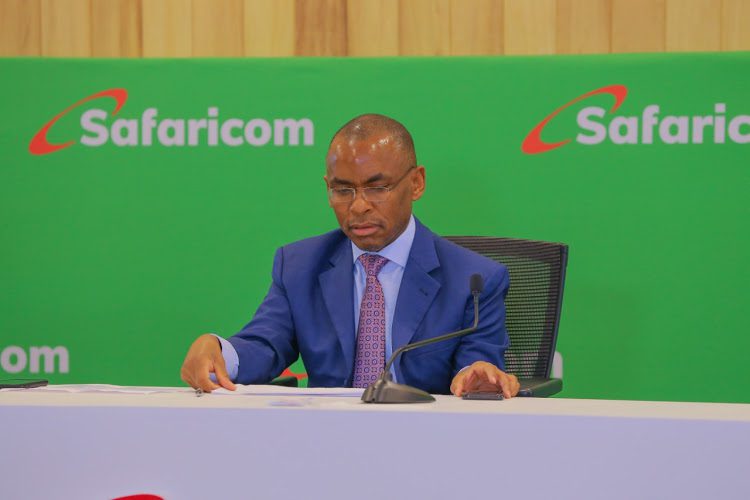Safaricom Half Year Profit – Safaricom Plc reported a 17.7% decline in half-year profit to KSh 28.1 billion from KSh 34.1 billion.
This decrease is attributed largely to the 106% depreciation of the Ethiopian Birr, which significantly impacted the company’s earnings from its Ethiopian operations.
ALSO READ
Despite the profit decline, service revenues rose by 12.9% to KSh 177.5 billion. This growth is supported by robust performance across all service lines, alongside an increase in customer numbers and overall usage.
Impact of Inflation and Currency Devaluation in Ethiopia
High inflation and the sharp devaluation of the Ethiopian Birr have created financial challenges for Safaricom. The Ethiopian currency’s devaluation against the dollar led to increased local currency expenses and foreign exchange losses, costing Safaricom KSh 17.5 billion over the past six months.
Ethiopia introduced a free-floating currency policy in July to reform its financial sector and attract International Monetary Fund (IMF) support. As a result, the Birr depreciated to 118.99 per dollar from 57.69 in June 2024.
Lowered Profit Expectations and Increased Capital Expenditure
Safaricom has adjusted its profit expectations for the fiscal year and increased capital expenditure guidance, reflecting ongoing investments in both Kenya and Ethiopia. The telecom has lengthened its break-even target for Ethiopia to March 2027, a one-year extension from the previous estimate.
Chief Finance Officer Dilip Pal indicated that the impact of the currency devaluation would be more significant on the half-year results than the full-year outcomes.
On the upside, Safaricom’s Kenyan business reported double-digit profit growth, rising by 14.1% to KSh 47.5 billion, driven by strong revenue growth across its services. M-Pesa revenue grew 16.6% to KSh 77.2 billion, spurred by higher customer usage and an increase in M-Pesa agents to 266,070.
Voice and messaging revenue grew by 4.8% and 8.0% respectively, making up 26.4% of the telco’s service revenue. Mobile data revenue also increased by 20.2% to KSh 35.6 billion, driven by an expanding customer base, device penetration, and personalized offers.
Expanding Customer Base and Market Share
Safaricom’s data customer base grew by 10.5% to 28.9 million, with an overall customer base increase of 7.8% to 52.01 million. As of June 2024, the company held a 65.4% market share in Kenya, underscoring its strong local presence.
Given the Ethiopian challenges, Safaricom’s management revised its earnings guidance for the year, now projecting earnings before interest and tax (EBIT) to fall between KSh 94 billion and KSh 100 billion. Capital expenditure is also expected to increase, now anticipated to be between KSh 80 billion and KSh 86 billion.
Safaricom, listed on the Nairobi Securities Exchange (NSE) under the ticker symbol SCOM, remains Kenya’s largest publicly traded company by market value. The telco’s share price dropped by 6.1% on Thursday, closing at KSh 15.50. The company has decided not to declare an interim dividend for this period.





























